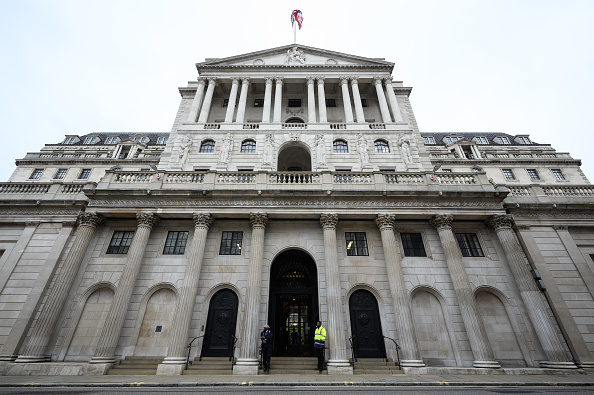Bank of England to look through Omicron and hike rates this month

The Bank of England will plough ahead and hike interest rates for the first time three years this month despite concerns the Omicron variant could whack the UK economy, according to City analysts.
Strong booster jab take up and high levels of existing immunity stemming from the successful vaccination programme has put the British economy in a strong position to withstand a fourth wave of coronavirus triggered by the new variant, experts at Goldman Sachs have predicted.
The emergence of the heavily mutated strain of coronavirus last week initially sparked fears over the health of the British economy due to the likelihood of strict restrictions to curb the spread of the disease.
These downbeat assessments cast doubt over whether the Bank would raise interest rates at its next meeting on December 16.
However, under Goldman’s baseline scenario, “the UK economy will hold up relatively well during the fourth wave, given high vaccine take-up and a successful booster programme,” the Wall Street investment banking giant said.
“As a result, we still believe that a 15 basis points BoE hike is more likely than not at the December meeting.”
Bullish assessments from global health leaders have emerged this week downplaying the severity of the Omicron, potentially pushing members of the Old Lady’s rate setting committee into lifting rates.
The World Health Organisation (WHO) tempered speculation that the existing crop of Covid-19 vaccines could be scuppered by the new variant by signaling there is no evidence the new strain reduces their efficacy.
GlaxoSmithKline also announced today its Covid-19 antiviral treatment is effective against Omicron.
Those upbeat health assessments have been echoed by economists this week, who have stressed the UK economy is in a much better position to function effectively even amid Covid-19 curbs.
A waning impact of the virus on the economy suggests it will be able to stand on its own two feet without ultra-loose monetary policy, paving the way for a rate hike.
Even before the emergence of the variant, the Bank was under intense pressure to hike rates to hose down runaway inflation.
The Old Lady stunned markets last month when it left rates unchanged at a record low 0.1 per cent despite expecting inflation to hit five per cent next spring.
Prices are already 4.2 per cent higher than they were a year ago, the highest rate of increase in nearly a decade, according to the Office for National Statistics.
Goldman also expects the Bank to hike again in May next year, taking rates to 0.75 per cent by the end of 2022.